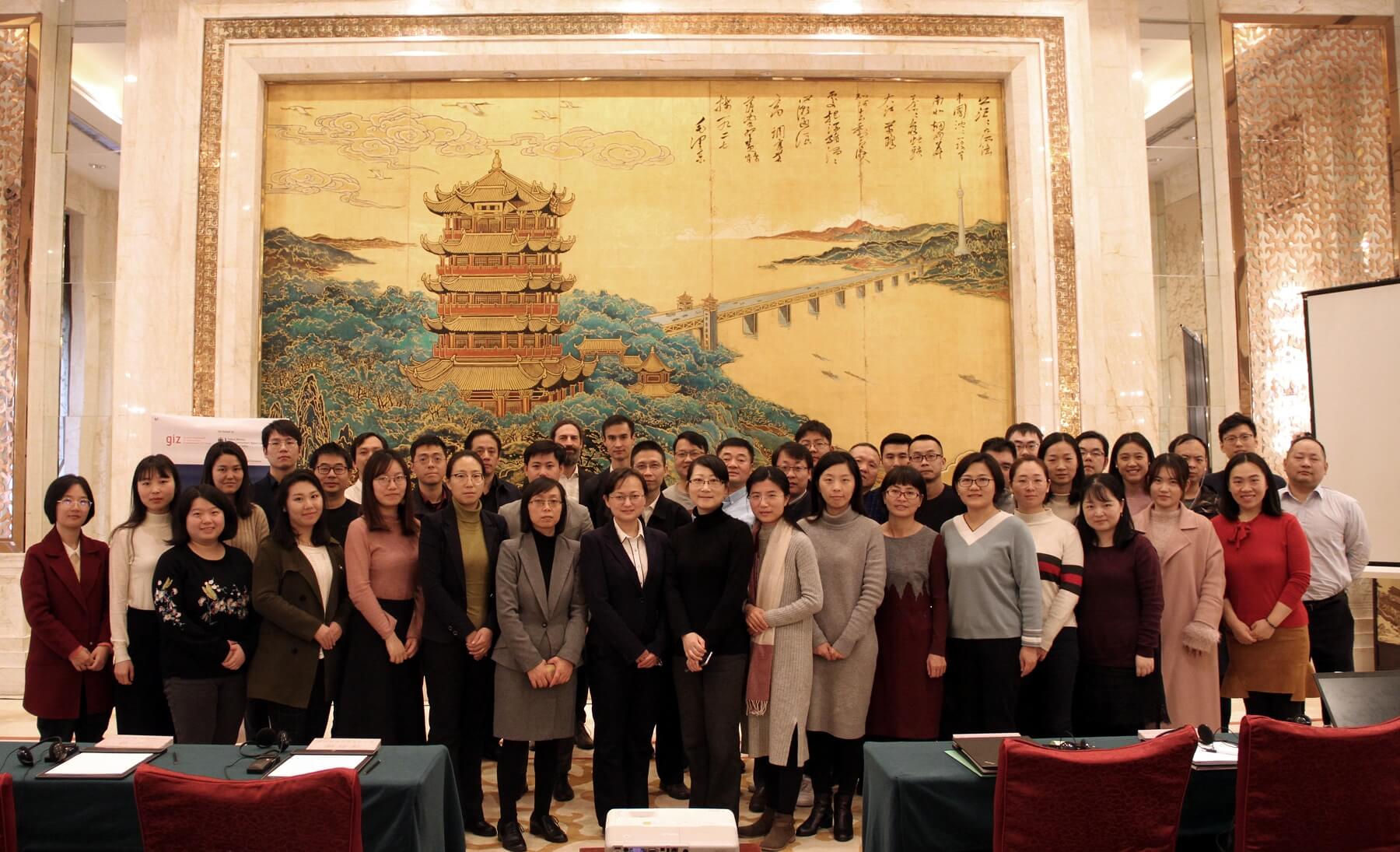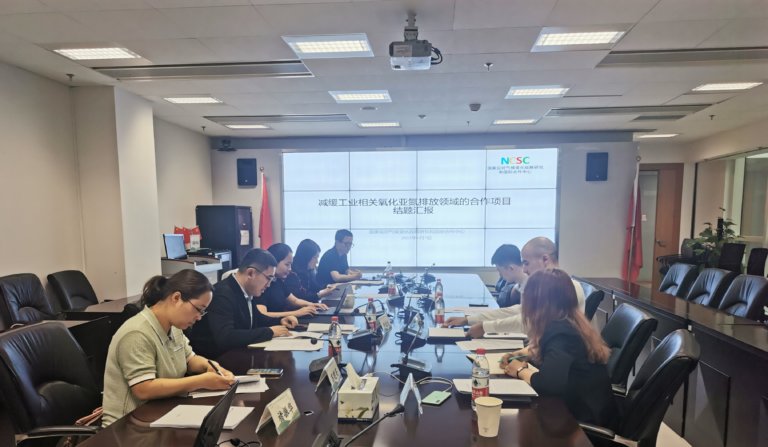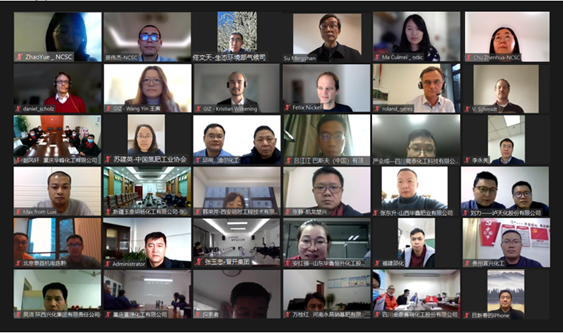
November 26, 2018 – On the 20th and 21st of November, the sixth and last advanced training this year took place in Wuhan, a city which is not only the capital of one of the pilot regions for carbon trading but also famous for its famous university campus that attracts bulks of tourists during the spring season while the cherry tree is blossoming up. The training was organised and implemented by GIZ together with the Chinese National Center for Climate Change Strategy and International Cooperation (NCSC). Structurally it was divided into inputs from Chinese and German experts, comprehensive discussion rounds and an interactive trading simulation in order to deepen the knowledge on ETS of the 29 participants from local Development and Reform Commissions (DRC) and Departments of Ecology and Environment (DEE), their supporting agencies and five state-owned power groups, from provinces of Hubei, Zhejiang and Jiangsu.
Introductory remarks on the first day were given by Mr. XU Xinqiao, Deputy Director of Hubei Development Strategy and Planning Bureau and Project Director at GIZ Mr. Kristian Wilkening, both reiterating the importance of ETS as an effective instrument to mitigate climate change in the respective national strategies. The first keynote speech was given by Ms. ZHANG Minsi, in which she broadly introduced the development of China’s national ETS and interpreted the work plan on the ETS construction for the power sector. She had to engage with several questions from the audience about the progress of the national ETS and further steps to be taken. Afterwards Ms. LI Ye from China Quality Certification Center (CQC) and Mr. Stephan Maier from the Deutsche Emissionshandelsstelle (DEHSt) shared experiences and practices of MRV in Europe and China. In the afternoon, Prof. DUAN Maosheng from Tsinghua University presented the allocation method in the power sector from a theoretical perspective but also raised examples of their practical application in the Chinese pilots and the national ETS.
On the following day, the programme started with a discussion round where representatives from the regional level shared their experiences with ETS design and administration. Hereafter, the group was divided into several small groups in order to give everybody the chance to join in the discussion about the experiences and challenges of companies regarding ETS participation.
Back in the plenary sitting, a spokesperson from each group presented the outcome of their discussions. In the last part of the training, Hubei Emission Exchange conducted an ETS trading simulation where participants could gather first-hand experience in emissions trading.
Retrospectively, all six trainings this year organised by GIZ together with NCSC have been a great success and helpful in manoeuvring through the uncertainties related to the development of an ETS during the government reshuffling while simultaneously detecting opportunities and challenges in this process. They did not only provide a platform to share international experience but also facilitated exchange among Chinese stakeholders. Further trainings in the coming year will be announced.



